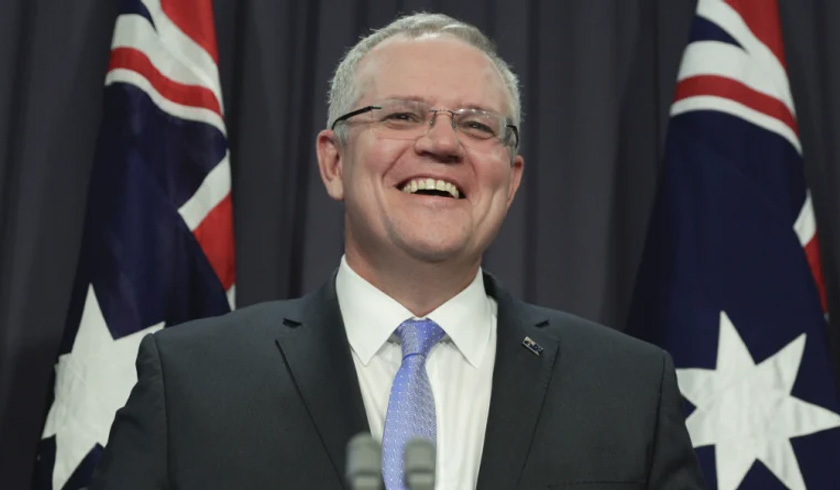Treasurer Josh Frydenberg has revealed the latest federal budget, and what it means for property investors in regards to capital gains tax, superannuation and negative gearing.
Here’s a quick summary of all the schemes, funding and details of the 2021 budget that are relevant to Australian property investors.
Negative gearing and capital gains
While the 2021 budget includes a number of measures relevant to property investors, it doesn’t directly address or change existing arrangements around the critical mechanism of negative gearing nor does it touch capital gains tax.
This lack of action in regards to election sweeteners, such as negative gearing, was largely foreseen by property experts, with Right Property Group’s Viktor Kumar telling SPI in April that “parties don’t mess around with property and tax pre-election. If they do, they get annihilated at the elections”.
Family Home Guarantee for Single Parents
A new ‘Family Home Guarantee’ has been introduced. This will allow up to 10,000 single parents to purchase a home with as little as a 2 per cent deposit over the next four years.
The scheme comes into effect from 1 July 2021 and is subject to a similar price cap system as the existing First Home Buyers scheme.
First Home Super Saver Scheme
Four years after its 2017 introduction, the First Home Super Saver Scheme is now being revised to allow first home buyers to make an early withdrawal of up to $50,000 in voluntary super contributions.
Previously capped at $30,000, the measure remains controversial with former Prime Minister Malcolm Turnbull claiming that the use of superannuation to purchase a property will simply enable further price increases.
New Home Guarantee
The FHLDS (New Homes) scheme (also known as the New Homes Guarantee) launched last year, will be expanded for a second year, providing an additional 10,000 places in 2021-22.
First home buyers seeking to build a new home or purchase a newly built home will be able to do so with a deposit of as little as 5 per cent.
Public housing
Despite fears the funding for the social services sector could be scrapped, the federal government will continue to support the state and territory governments through $124.7 million in funding for social and community housing.
This measure is part of a wider set of budget-based efforts to address the impact of rising homelessness across the country.
The move has been greeted with gratitude by advocacy groups like the Australian Council of Social Service.
According to Homelessness Australia chair Jenny Smith, “The sector can now get on with the job of supporting people without a home, or at risk of homelessness, without the additional worry of having to cut programs or reduce service capacity.”
Superannuation Downsizer Scheme
The eligibility criteria for the government’s existing downsizer scheme (introduced in the 2017 budget) is being expanded to include Australians aged 60 years and over.
The scheme, which allows participants to make a one-off $300,000 contribution to their super, was previously only eligible to Australians aged 65 years or older.
$15.2bn infrastructure spend
The Treasurer confirmed that the government is spending $15.2 billion over 10 years on a number of infrastructure projects, including:
$2 billion initial investment for a new Melbourne Intermodal Terminal for the transfer of freight
$2.03 billion for Great Western Highway Upgrade – Katoomba to Lithgow – construction of east and west sections in NSW
$400 million for Inland Freight Route (Mungindi to Charters Towers) upgrades in Queensland
$161.6 million for the Truro Bypass in South Australia
$160 million for Agricultural Supply Chain Improvements – ‘Package 1’ in Western Australia
$150 million for National Network Highway upgrades (Phase 2) in the Northern Territory
$80 million for Bass Highway safety and freight efficiency upgrades in Tasmania
$26.5 million for William Hovell Drive duplication in the ACT
HomeBuilder
After being rolled out in mid-2020, applications for the government’s HomeBuilder scheme are not receiving an extension in this year’s federal budget.
Applications for the scheme, which provided grants of $25,000 for new homes and major renovations to eligible Australians, closed in April.
However, the HomeBuilder six-month construction commencement period has been extended to 18 months for all applications. This will smooth out the HomeBuilder construction pipeline and support jobs in the construction sector in 2021 and into 2022.
Source: https://www.smartpropertyinvestment.com.au/research/22676-few-surprises-for-property-investors-in-the-2021-budget


